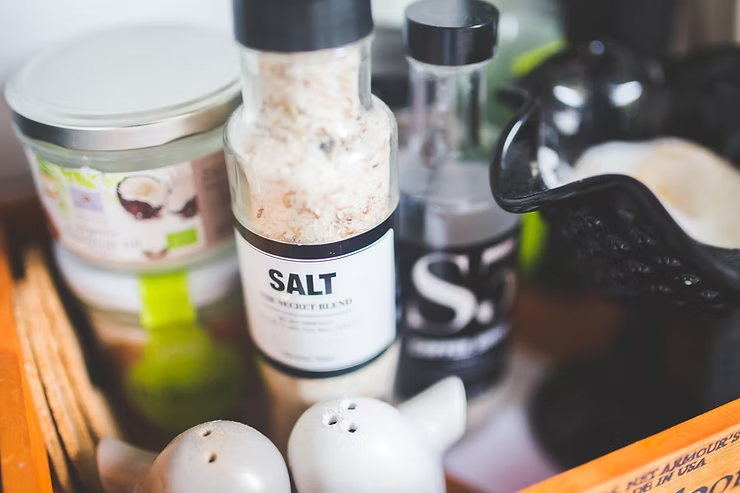Salt is essential for our bodies because it contains sodium, which plays a vital role in several key physiological functions. Here are a few reasons why salt is so important:
1. Electrolyte Balance
Electrolytes are charged particles in your body that help control how fluids move in and out of your cells. Sodium (from salt) is one of the most important electrolytes. It helps to balance the amount of water inside and outside of your cells. Without this balance, your cells could shrink or swell, which could affect their function. The balance of electrolytes also helps maintain the right amount of fluid in your bloodstream and organs, which is vital for overall health.
2. Nerve Function
Your nervous system sends signals through electrical impulses. Sodium is involved in these signals by helping create the electrical charges needed to carry information between your brain, nerves, and muscles. This is why you’re able to move your muscles, feel sensations (like touch or pain), and even think! If you didn’t have sodium, your nerves wouldn’t be able to communicate properly, which would affect everything from simple movements to complex brain functions.
3. Muscle Function
Muscle contraction (the way your muscles tighten when you move) relies heavily on sodium. For your muscles to work properly, sodium helps them “fire” or contract when they receive a signal from your brain. Without enough sodium, muscles might not work properly, leading to muscle weakness or cramps. That’s why, when you’re low on salt, you may feel tired, or even experience painful cramps after exercise.
4. Blood Pressure Regulation
Sodium helps control the amount of fluid in your bloodstream. This, in turn, affects blood pressure—how hard your blood is pushing against the walls of your blood vessels. If you have too much sodium, your body holds onto extra water, increasing the volume of blood in your circulatory system, which can raise blood pressure. On the other hand, too little sodium can cause low blood pressure, leading to dizziness or fainting. Your body needs just the right amount to keep things running smoothly.
5. Acid-Base Balance
Your body needs to maintain a certain pH level (how acidic or basic something is) to function properly. Sodium helps keep your blood and tissues at the right pH level. If your pH balance is off, your organs and cells can’t work as they should. Salt helps act as a buffer, preventing your body from becoming too acidic or too basic. This helps keep your body in a stable state so that it can do things like digest food, build muscles, and fight infections.
6. Hydration
When you sweat, urinate, or lose fluids in any other way, you lose sodium. Sodium is what helps your body hold onto water, keeping you hydrated. If you don’t have enough sodium, your body can lose too much water and become dehydrated. But, if you have too much sodium, your body can retain too much water, causing swelling and bloating. This is why it’s important to have just the right amount of salt in your diet to keep your body’s hydration levels balanced.
By keeping the right amount of sodium, your body is able to function smoothly and maintain balance in all these different areas. It’s like having a finely tuned engine where every part (sodium, water, electrolytes) is working together to keep everything running as it should!


